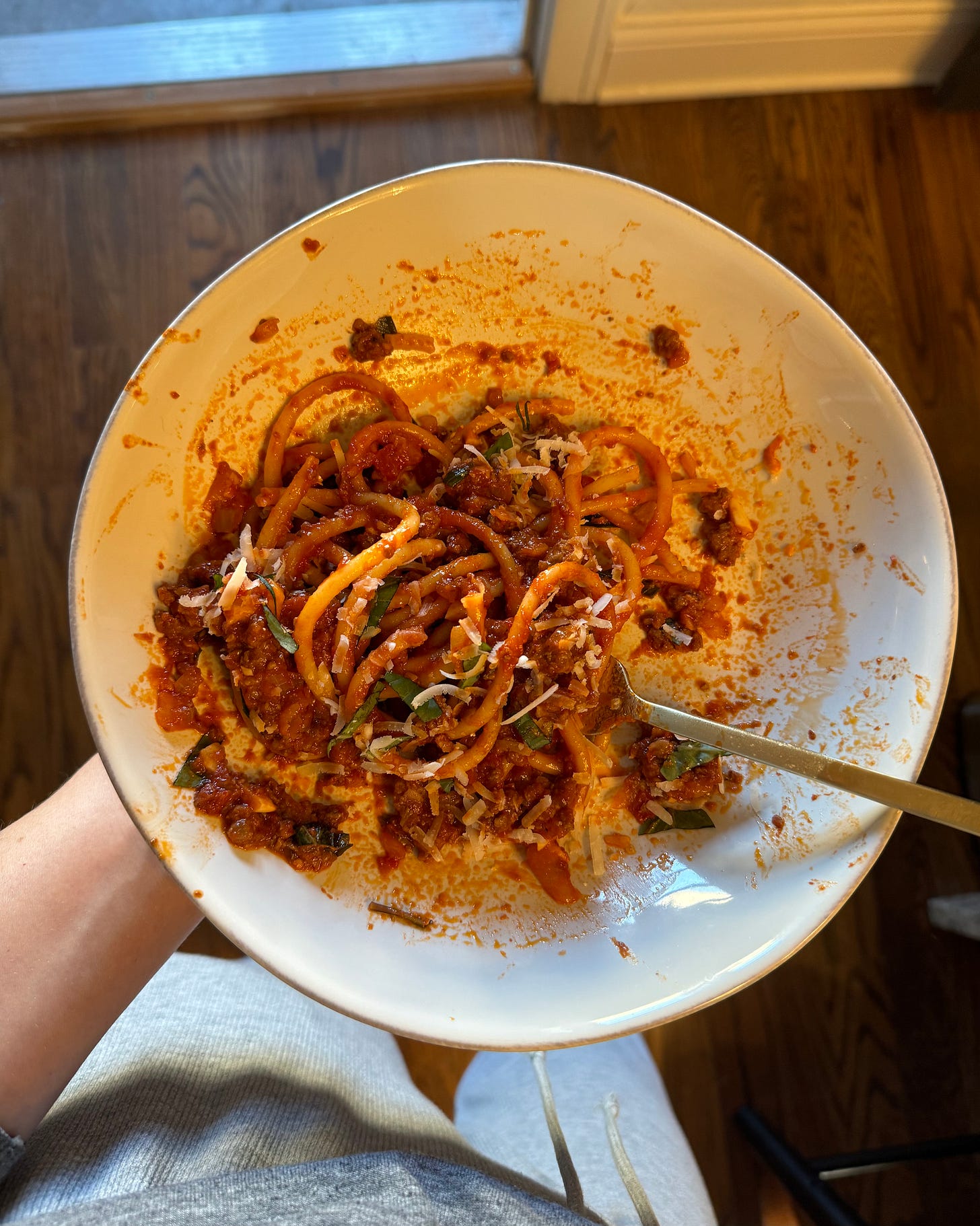A few weeks ago, I sat in front of a blinking cursor on a blank Google Docs page for probably the thousandth time. But on this particular morning, the looming deadline proved no match for my wandering mind.
I should compost those coffee grounds and brew another pot. The bathroom sink really needs to be wiped down. When was the last time I updated my website portfolio?
Whenever I’m in a procrastinatory state like this, I don’t like to self-impose the pressure of starting a story at the beginning. After all, writing a hook is intimidating. It’s the first impression! The only chance we get to capture then keep the reader’s attention! Sometimes it’s gentler to start a little further down in the story, where the proverbial aromatics and spices have already been sautéing. I can pick up this stage of the storytelling formula with my eyes closed: Pop in a few malleable supporting quotes, transition into the lesser points I want to make without straying too far from the larger theme. This is the meat of the thing, where I fill in and explain details before building to a dramatic, nicely garnished conclusion.
Today, however, this strategy isn’t working. So I move onto scrubbing the shower tile. I mean, since I’m here I might as well clean the whole bathroom.
Then suddenly, a single phrase pops into my head. I rush back to my desk and that impatient cursor and type the following phrase: “Oh no, did I make enough?”
The story I’d been avoiding was one about our human tendency to cook too much food for the people we love. (Some of you can perhaps relate to this, whenever you examine a box of pasta that boldly claims to contain enough for you and the three other people you’re having over for dinner.)
I’d already interviewed psychologist Meryl Pankhurst to help me unpack this fascinating, knotty question and its root causes, during which she told me she could’ve written a dissertation on it. In fact, she’d provided such a wealth of possible explanations—a culture that normalizes excess food, a generations-deep scarcity mindset, a need for approval from family and friends or to tangibly articulate love—that I found myself becoming overwhelmed by the topic, even briefly questioning my fitness to tackle it.
Returning to this simple question enabled me to regain control of my place within this story, because it was where the idea was born. “Oh no, did I make enough food?”
Suddenly, I’m back inside a familiar scene—doling out pasta for a small dinner party. The doubt creeps in quietly, then escalates as the coiled heap in the pot diminishes. Before long, I’m redistributing individual noodles among the bowls, convinced someone will nonetheless feel slighted. No matter that everyone already ate crab delights and cheese and slabs of bread smeared with tapenade. “I don’t know if I made enough for everyone to seconds!” I moan to my husband. Yet as I repeat this ludicrous behavior yet again, I know there’s bigger stuff going on. Why do I always worry about making enough? Where does this fear come from? What’s the worst thing that could happen if I didn’t make enough, like, really? How do I unlearn this habit?
Reclaiming my place in this story grounds me in another sense, too. That another empty page is not something to fear, but to fill with answers (or more questions) to our weird little questions, and offer reassurance that other weirdos are asking the same ones. More importantly, does a box of pasta really feed four? I guess as a primi course maybe.






You know I'm always going back for seconds of anything you serve -- or at least I hope I am! 😉
This is beautifully written and so relatable. I, too, feel surging anxiety about portions when I host friends and family, even as I make platters and platters of food. I didn’t grow up with a scarcity mindset at all—so it’s probably more a worthiness question for me. Thanks for writing this!